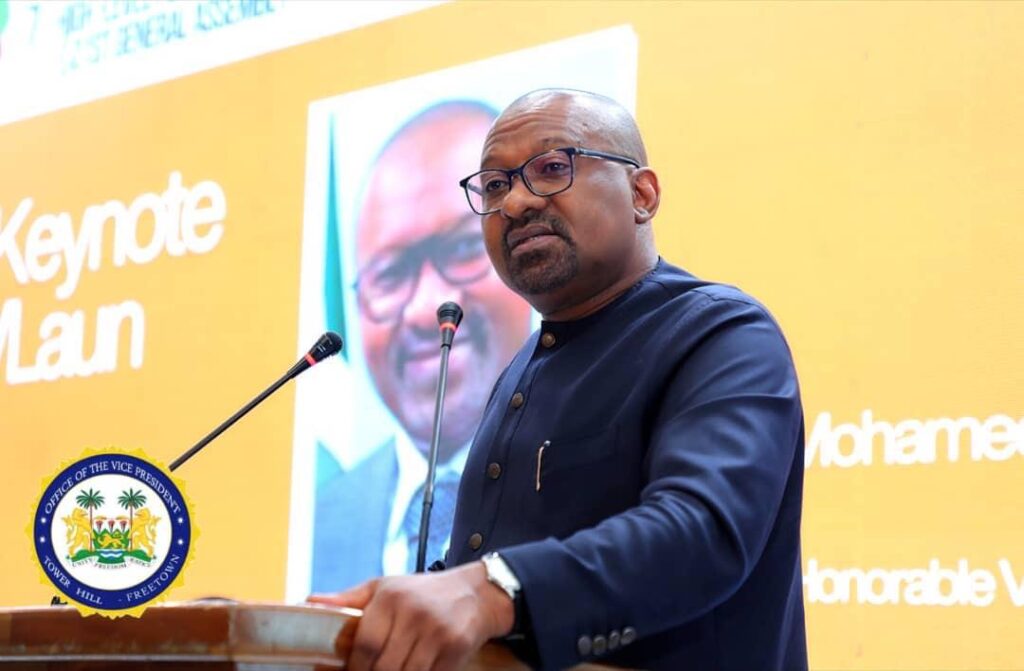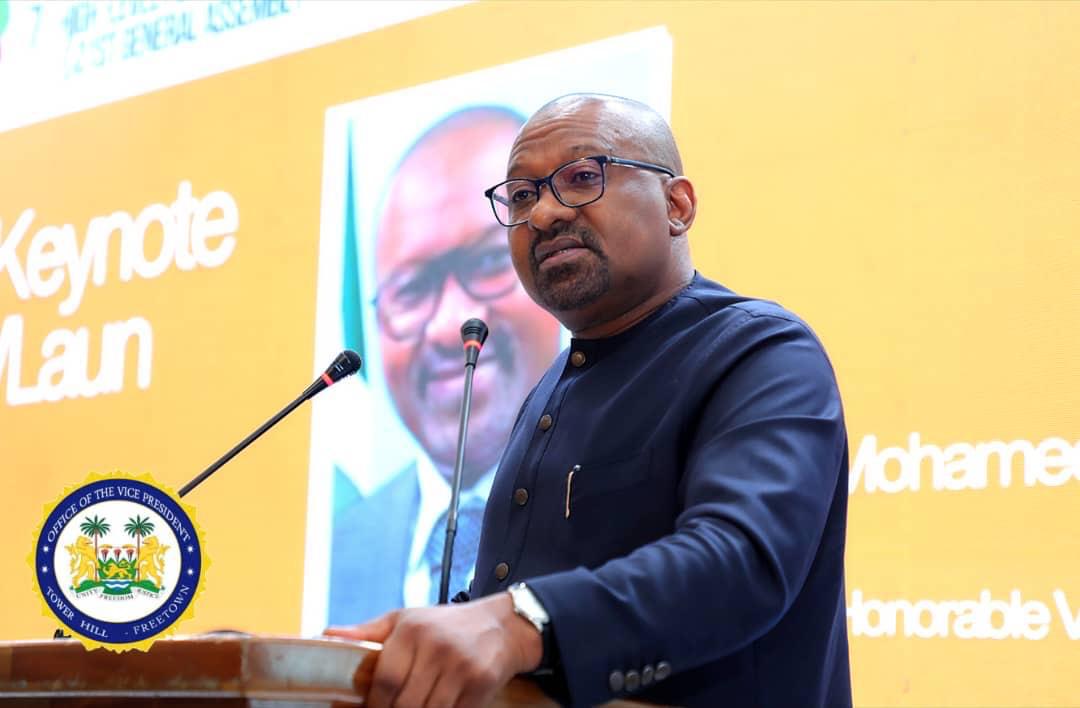
VP Jalloh Calls for Bold Revenue Drive to Secure Sierra Leone’s Future
By Aminata Turay
Hon. Vice President Dr. Mohamed Juldeh Jalloh has called for urgent and innovative measures to boost Sierra Leone’s domestic revenue mobilization, warning that the country’s growing population and development needs cannot be sustained by external aid alone. Speaking at the FY 2026 National Policy Hearing and Bilateral Budget Discussions, organized by the Ministry of Finance in collaboration with the Ministry of Planning and Economic Development, the Vice President said the theme “Enhancing Traditional and Innovative Domestic Sources of Revenue Mobilization to Finance the Big Five Game Changers” could not be timelier. He emphasized that the future of the nation’s children depends on the ability of government to strengthen revenue capacity and reduce reliance on volatile foreign support.
Drawing on his recent participation in international financing conference, Dr. Jalloh noted that low-income countries like Sierra Leone face increasing challenges due to shifting global priorities, debt burdens, and dwindling development assistance.
The Vice President outlined practical steps to broaden the revenue base, including digitalizing tax administration, rationalizing tax exemptions, addressing illicit financial flows, and exploring non-traditional financing such as diaspora bonds and climate finance. He also underscored the need to support small businesses, expand the productive sector, and strengthen accountability in both public and private sectors. “Domestic resource mobilization is not just an economic necessity it is a social contract with our citizens and a responsibility to our children,” Dr. Jalloh concluded, urging all ministries, stakeholders, and development partners to work collectively towards building a resilient and self-reliant Sierra Leone.
Minister of Finance, Sheku Ahmed Fantamadi Bangura, in his statement, assured Sierra Leoneans that the government’s FY 2026 budget will be firmly anchored on stability, growth, and job creation, while aligning with the aspirations of the Big Five Game Changers. he stated that the three-year rolling plan (2026–2028) will focus on creating 5,000 jobs for youths while promoting 30% of female representation, strengthening public investment in energy, transport, and infrastructure, and ensuring inclusive governance. He highlighted that the budget call circular issued to all MDAs is guided by the Public Financial Management Act 2016, with clear timelines to guarantee accountability and alignment with medium-term priorities.
The Minister further reported that, despite global economic shocks, Sierra Leone has begun to build strong macroeconomic fundamentals. Inflation, he noted, has fallen to 9.3% for the first time in years, supported by relative currency stability, improved food production, and moderating global prices. He stated that the 2026 budget will continue to rationalize tax exemptions, expand the revenue base through technology-driven reforms, and attract climate and innovative financing.
The Minister of Planning and Economic Development madam Kenyeh Barlay , in her statement called for bold and innovative financing strategies to ensure Sierra Leone’s 2026 budget delivers real impact for citizens, noting that every reform must translate into jobs, services, and opportunities for ordinary families. She acknowledged that global aid is shrinking and economic pressures remain high, but insisted that by strengthening domestic resource mobilizations, reforming public investment, and tapping into climate finance and private sector opportunities, government can create the fiscal space needed to support the Big Five Game Changers. She explained that new measures such as completing long-delayed local projects, enforcing stricter budget discipline, and digitalizing oversight will ensure resources are not wasted, but instead reach communities where schools, hospitals, and infrastructure are urgently needed.
Chairman, parliamentary finance committee, Hon. Kai Samba in his statement, discussed the crucial role of Parliament in the national budget process, emphasizing its responsibility in scrutinizing and guiding government fiscal policy. He highlighted that the budget serves as the key instrument through which government policies are implemented, covering annual revenue and expenditure plans. He further stated that Parliament plays a vital role in reviewing, debating, and amending proposed financial measures, ensuring public funds are allocated responsibly, aligned with national development priorities, and subject to transparency and accountability, thereby strengthening governance and the effective implementation of government programs.
All leaders underscored a shared vision to strengthen domestic resource mobilization enforce fiscal discipline and priorities investment that directly improves the lives of citizens.
